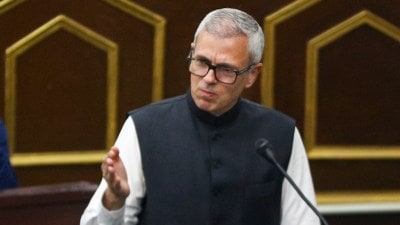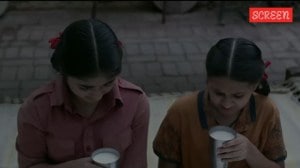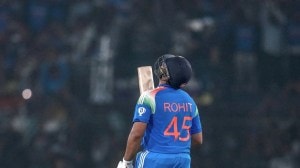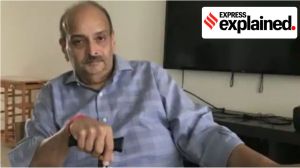Advocate censured by high court
NEW DELHI, August 11: The Delhi High Court has censured an advocate who tried to `dupe' the court into securing ``condonation of delay'' ...

NEW DELHI, August 11: The Delhi High Court has censured an advocate who tried to `dupe’ the court into securing “condonation of delay” in a case and referred the matter to the Registrar General of Supreme Court and the Bar Council of India for appropriate action against him.
Justices Y.K. Sabharwal and K.S. Gupta directed that a copy of the order and photocopies of all papers filed in the petition be sent to the bar councils and the registrar general for the purpose of action.
The judges dismissed the application of condonation of delay of 222 days in filing an appeal against a single judge order and the `fake’ appeal (as it was not signed by the lawyer contesting the case as required under law but by his clerk) and imposed a cost of Rs 20,000 on petitioner Vinod Kumar Gambhir for his involvement in trying to dupe the court to gain condonation.
The judges, in their 26-page order, said: “In our considered view the plea of Gambhir having been duped by adovate J.P.N. Gupta (who was alleged to have misled the petitioner and wasted 222 days in filing the appeal) is wholly misconceived. On the other hand, attempt was made to dupe this court. It is a clear case of abuse of the process of law.”
While passing the order for action against lawyer K.K. Mehrotra, the judges observed: “Having bestowed our thoughtful consideration, we feel that the facts are so glaring that it would amount to failure of duty on our part to close the matter by order of dismissal of appeal.”
The Supreme Court, while dealing with a petition wherein the lawyer on record had filed an affidavit in the name of a dead person allegedly signed by the deceased, had refrained from taking a serious view of the matter in view of the unconditional apology by the advocate. The advocate before the apex court, S.K. Sinha, and advocate in this case, Mehrotra, happen to be closely associated.
The apex court had also issued warning to Sanjay Lodhi, clerk of Sinha and Mehrotra, for signing the affidavit on behalf of the dead. Lodhi is also charged with forging the signature of Mehrotra in this case. The high court judges refused to treat the petition of Gambhir as an appeal against the single-judge order or the application for condonation of delay in view of the facts that the lawyer’s signatures on them were not of Mehrotra, but were forged by Lodhi.
The judges rejected outright the contention of the petitioner that without going into the question as to which of the advocates had duped him, he had been in fact cheated and thus delay in filing appeal by him deserved to be condoned. “It seems evident that the appellant was a party to the plea of negligence of counsel being set out in order to somehow or the other obtain form this court’s orders condoning delay in filing the appeal,” the order said.
On Mehrotra’s denial that Lodhi was also working as his clerk, the judges said one of the documents which purported to bear the signatures of Mehrotra but were in fact signed by Lodhi was submitted to the apex court on October 23, 1996.
When brought to the notice of Mehrotra during the proceedings of the case, the advocate did not dispute that his signatures on the said vakalatnama were appended by Sanjay Lodhi and he had been appearing in the case on the basis of the same document.
Mehrotra in the application of condonation of delay alleged that after scrutiny of the matter, it was found that Gambhir was being blindly played by Gupta as he was not even aware of the basic facts of the case. “It is not a feeling of anger but of anguish for the reason that advocates are officers of court. If officers of court start conducting themselves in the manner shown in the present case, what example they would set for others. Who will protect the victims? Who will take care of the dignity of courts?” the bench asked.
“The legal profession is known as a noble profession and has set up highest traditions and produced many stalwarts. These stalwarts have made useful contribution in other fields as well and have played a vital decisive role in the freedom struggle. Such a course of conduct from a member of legal fraternity deserves to be severely dealt with lest it may encourage others,” the court opined.
They said: “The warning by the highest court has not produced the desired result as apparent from the facts of the case. There is no difficulty in adopting an attitude of leniency and showing magnanimity rather than to adhere to nail-studded path of painful duty while dealing with a member of your own family.”



- 01
- 02
- 03
- 04
- 05




























